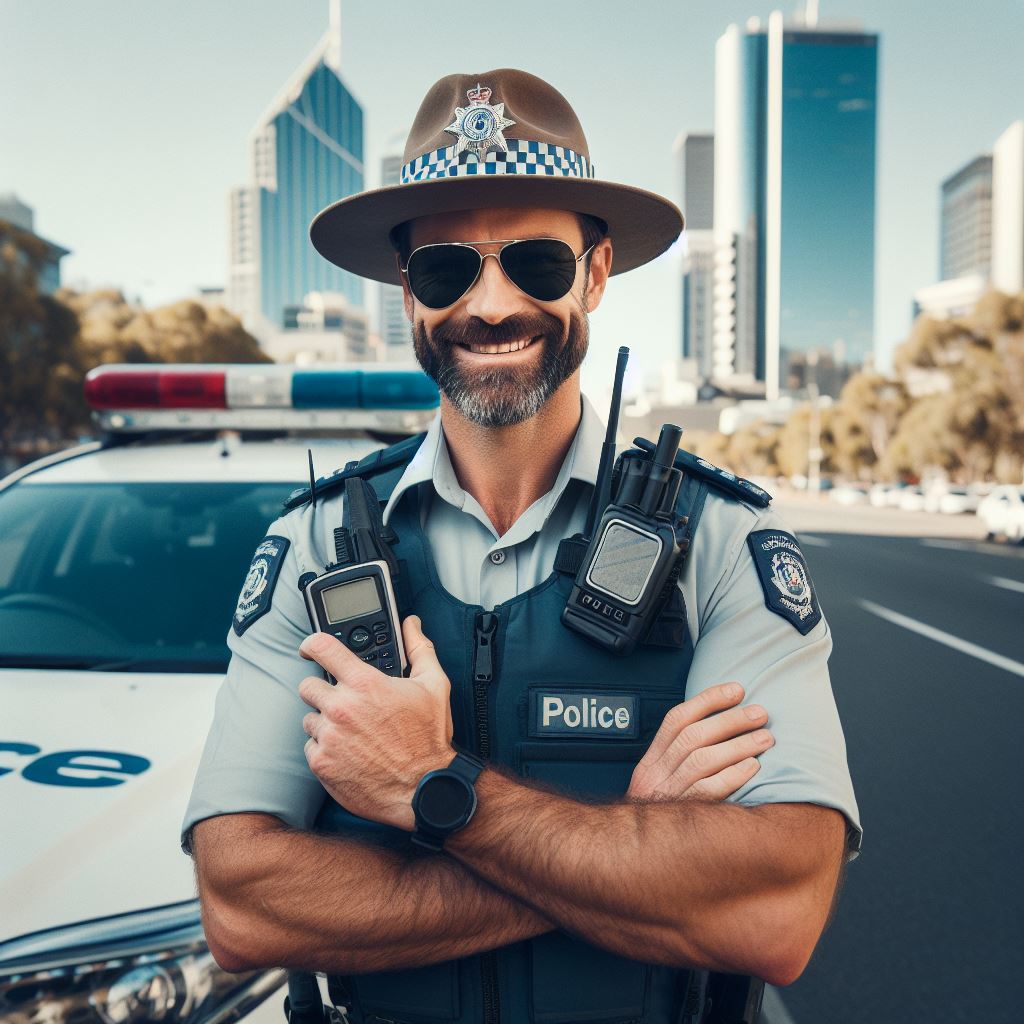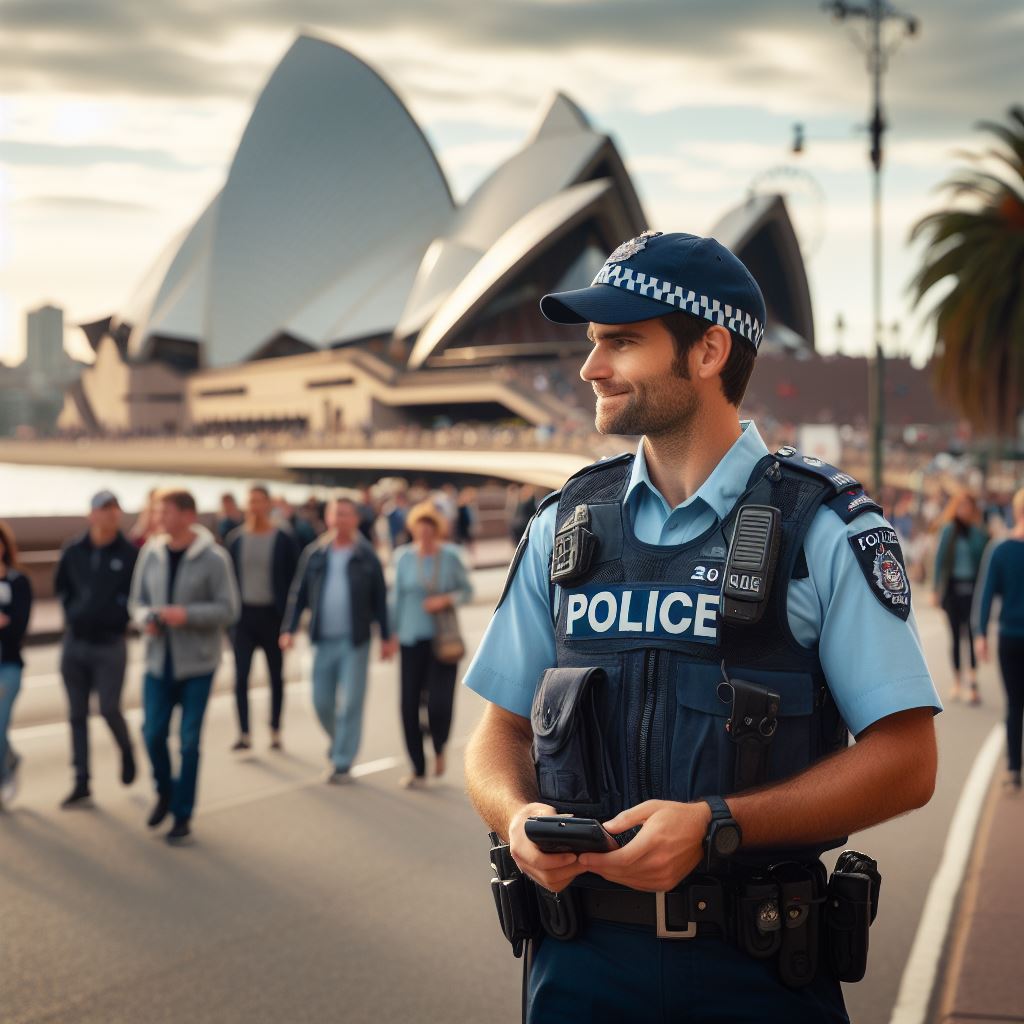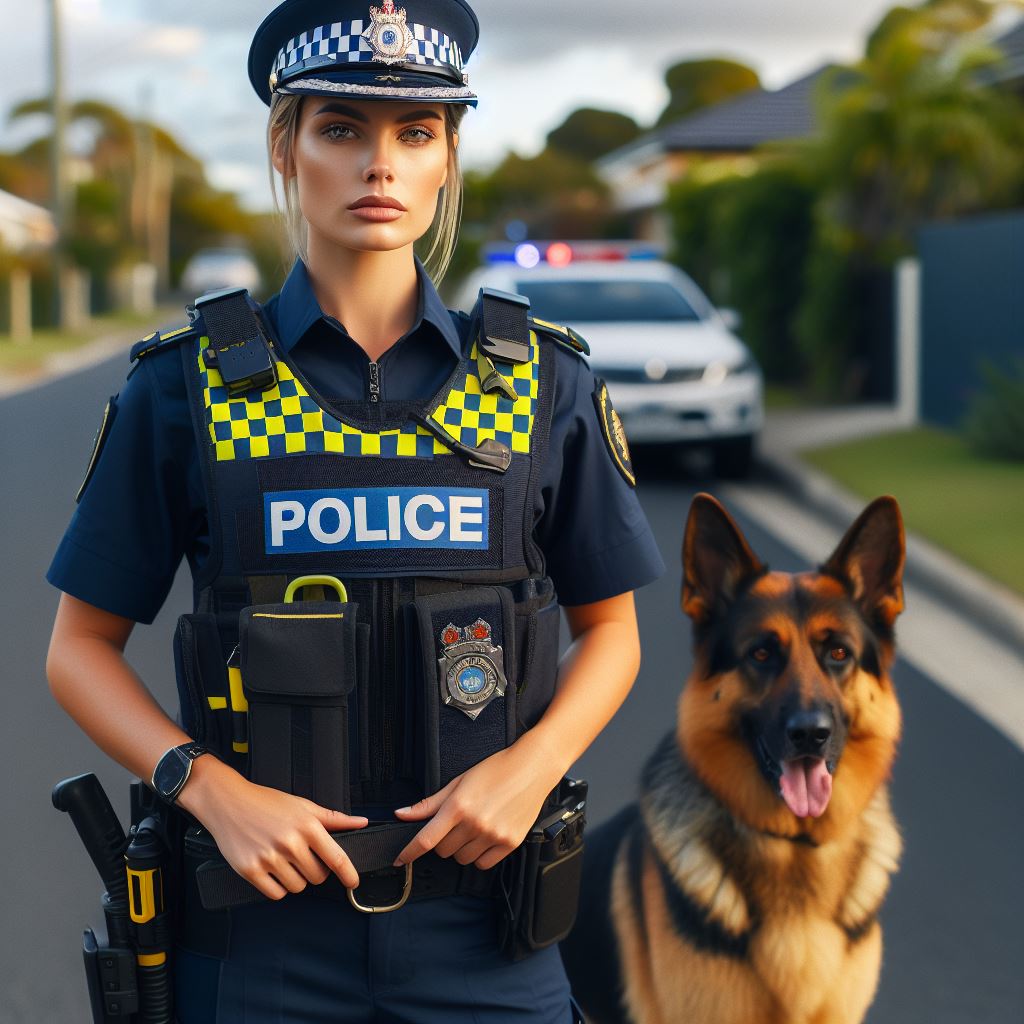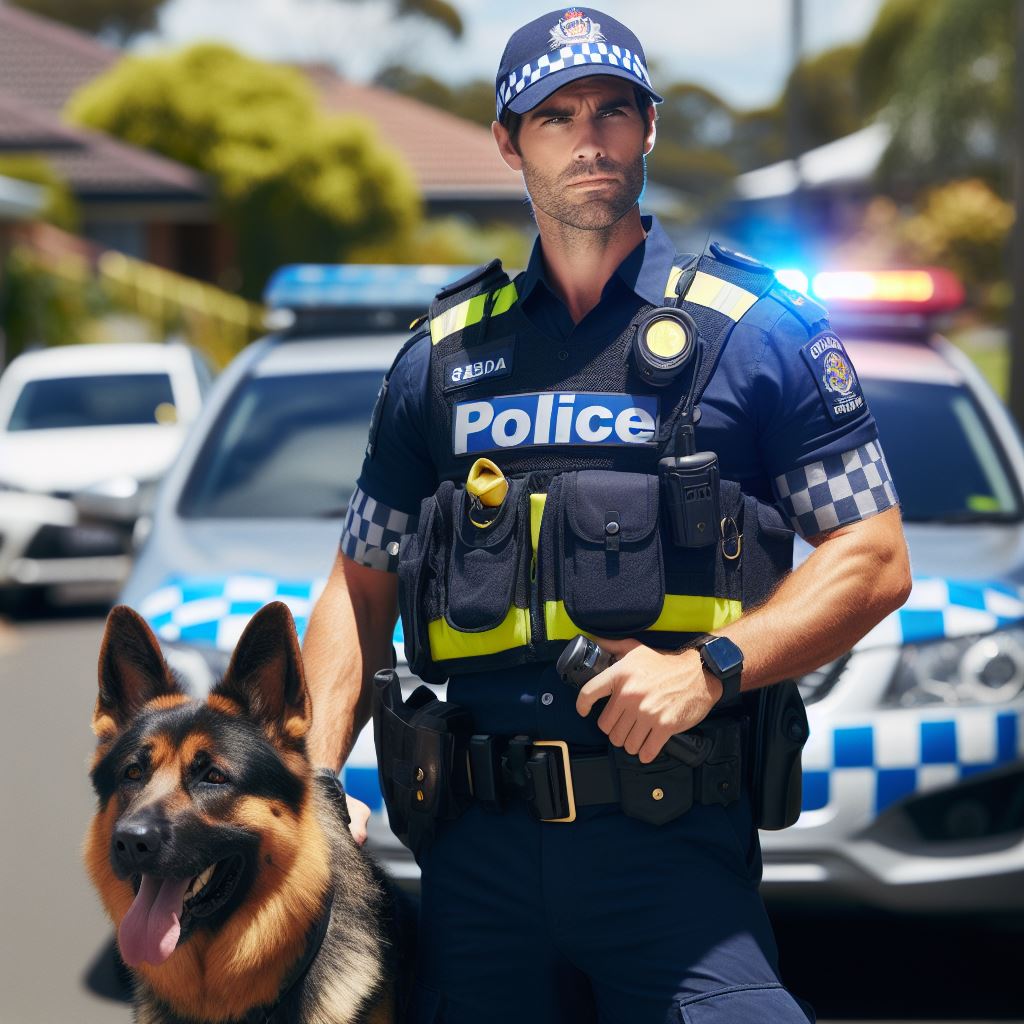Introduction
Physical fitness plays a crucial role in the effectiveness of police officers.
This blog post aims to discuss the significance of physical fitness standards for police.
Physical fitness is a critical aspect of a police officer’s job.
It directly impacts their ability to handle the physically demanding tasks they face on a daily basis, such as pursuing suspects, making arrests, and maintaining public safety.
In order to ensure optimal performance, police departments set specific physical fitness standards for their recruits and officers.
The purpose of this blog post is to highlight the importance of physical fitness in the police force and shed light on the standards that officers must meet.
By understanding the significance of physical fitness and the expectations placed on police officers, both aspiring recruits and the general public can gain a deeper appreciation for the work of the police.
Several factors make physical fitness standards crucial for police officers.
Firstly, they enhance an officer’s overall health and well-being.
Maintaining a high level of physical fitness reduces the risk of injuries and promotes longevity in a physically demanding career.
Secondly, physical fitness directly impacts an officer’s ability to respond effectively in high-stress situations.
Quick reactions, stamina, and strength are essential components of being a capable police officer.
In review, physical fitness is a key requirement for police officers.
This blog post will delve into the importance of physical fitness in the police force and explain the purpose of the subsequent discussions on the standards set for police officers.
By exploring this topic, we hope to provide valuable insights into the demanding physical requirements of a career in law enforcement.
Read: Technology’s Impact on Diplomacy
Physical Fitness Standards for Police
In order to become a police officer, meeting specific physical fitness standards is crucial. These standards ensure that officers are able to perform their duties effectively, protect themselves and the community, and serve as role models to the public.
General requirements
Basic physical fitness criteria
Police agencies typically have minimum requirements for physical fitness, including specific criteria for cardiovascular endurance, muscular strength, and body composition.
These standards aim to ensure that officers have a sufficient level of fitness to perform their duties.
Mental and psychological aspects
Physical fitness is not just limited to the physical aspects but also involves mental and psychological aspects. Police officers need to demonstrate resilience, stress management skills, and the ability to handle high-pressure situations.
These qualities are important for overall job performance and effectiveness.
Specific fitness tests
Endurance and cardiovascular fitness
Police officers often need to chase suspects on foot, engage in physical altercations, and respond to emergencies quickly. Good endurance and cardiovascular fitness are crucial for these tasks.
Tests such as timed runs or obstacle courses are commonly used to evaluate an officer’s endurance and cardiovascular fitness.
Strength and muscular endurance
Police officers often need to physically restrain individuals, carry heavy equipment, and perform other physically demanding tasks. Strength and muscular endurance are necessary to perform these duties effectively.
Tests such as push-ups, sit-ups, and lifting weights are commonly used to assess an officer’s strength and muscular endurance.
Agility and flexibility
Police officers often need to move quickly and easily in various environments and situations. Agility and flexibility are crucial for navigating obstacles, chasing suspects, and performing other physically demanding tasks.
Tests such as agility drills and flexibility tests are used to evaluate an officer’s agility and flexibility.
Importance of passing physical fitness tests
Job performance and effectiveness
Physical fitness directly impacts job performance and effectiveness for police officers.
Officers who are physically fit are better equipped to handle the physical demands of the job, which can include long hours, physically intense situations, and emergencies.
Being physically fit enables officers to perform their duties effectively and maintain their physical and mental well-being.
Officer safety
Physical fitness is closely linked to officer safety. Police officers often find themselves in dangerous and unpredictable situations, where physical strength and endurance are essential for self-defense and protection.
Being physically fit can increase an officer’s chances of successfully defending themselves and minimizing the risk of injury or harm.
Role model for the community
Police officers serve as role models to the community they serve. Demonstrating a high level of physical fitness not only inspires confidence in their abilities to protect and serve but also encourages community members to prioritize their own physical health and well-being.
Physical fitness can be seen as a reflection of professionalism and dedication to the job.
In general, physical fitness is a fundamental requirement for police officers. Meeting the general requirements and passing specific fitness tests is essential for job performance, officer safety, and serving as role models to the community.
Read: Future of Diplomacy: Australia’s Role
Uncover the Details: Retirement of Politicians: What Happens Next?
Find Out More: Australian Fire Codes and Safety Laws
Your Personalized Career Strategy
Unlock your potential with tailored career consulting. Get clear, actionable steps designed for your success. Start now!
Get StartedTraining and Preparation for Physical Fitness Tests
Importance of consistent training
Training consistently is crucial for police officers to maintain their physical fitness standards. It ensures they can perform their duties effectively and handle any physical challenges they may face on the job.
Components of a training program for police fitness tests
- Cardiovascular exercises: Including activities like running, swimming, or cycling to improve overall endurance and cardiovascular health.
- Resistance and strength training: Incorporating weightlifting and bodyweight exercises to build strength and muscle mass, which is essential for performing physically demanding tasks.
- Agility and flexibility exercises: Working on exercises that enhance agility, coordination, and flexibility to improve overall mobility and reduce the risk of injury.
Nutrition and hydration for optimal performance
Proper nutrition and hydration are essential elements in preparing for physical fitness tests.
It is important to consume a balanced diet, rich in protein, carbohydrates, and healthy fats. Staying hydrated is equally crucial for optimal performance during training sessions and tests.
Rest and recovery
Sufficient rest and recovery play a vital role in physical fitness training. Adequate sleep and rest days allow the body to repair and rebuild muscle tissues, reducing the risk of overexertion and injuries.
Implementing a well-rounded training program that includes cardiovascular exercises, strength training, agility work, and proper nutrition and hydration is vital for officers’ success in physical fitness tests.
Additionally, resting and recovering properly is equally important to prevent burnout and maintain peak performance.
Read: Understanding Ranks in Australian Police Force
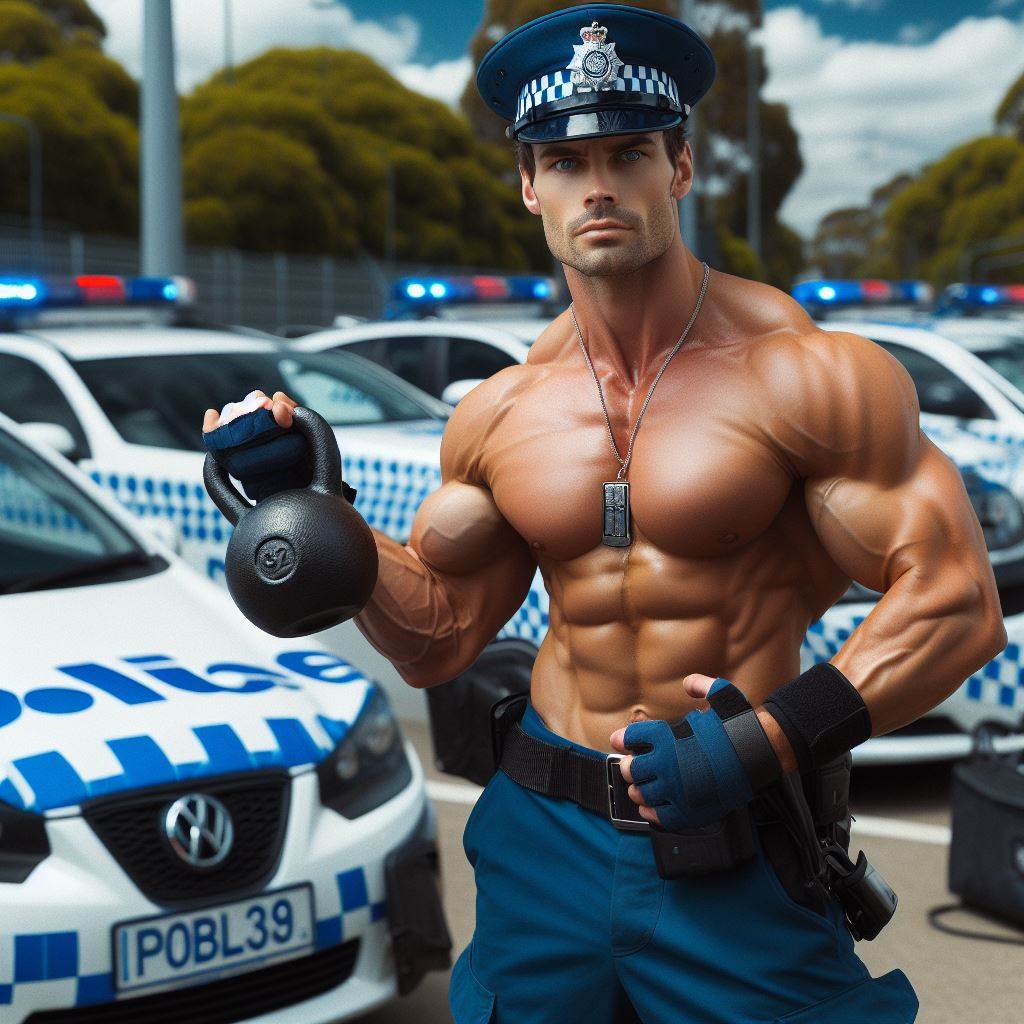
Tips for Success in Physical Fitness Tests
Achieving success in physical fitness tests requires dedication and a strategic approach. Here are some tips to help you excel:
Setting specific goals
Define clear and measurable goals that align with the physical fitness standards for police.
Seeking guidance from fitness professionals
Consult with certified fitness professionals who can design a tailored workout plan for you.
Monitoring progress and making adjustments
Continuously track your progress and tweak your training routine as needed to ensure improvement.
Mental preparation techniques
Visualization
Visualize yourself successfully completing each component of the physical fitness test.
Positive self-talk
Encourage yourself with positive statements to boost your confidence and motivation.
Support and accountability
Training with a partner or in a group
Team up with a partner or join a training group to benefit from mutual support and motivation.
Utilizing a training journal or app
Keep a record of your workouts and progress using a training journal or a fitness app.
By following these tips, you can enhance your physical performance and optimize your chances of success in the police fitness tests.
Stand Out with a Resume That Gets Results
Your career is worth more than a generic template. Let us craft a resume and cover letter that showcase your unique strengths and help you secure that dream job.
Get HiredRead: How to Become a Police Officer in Australia
You Might Also Like: Navigating Promotions in Government Jobs
Delve into the Subject: Police and Legal System in Australia
Conclusion
In closing, the paramount importance of maintaining robust physical fitness standards within the police force cannot be overstated.
A recapitulation of our journey underscores that physical fitness is not merely a checkbox on a list but an integral component that enhances the effectiveness and safety of law enforcement officers.
Physical fitness is the bedrock upon which the prowess of police officers stands.
From agility and endurance to strength and resilience, maintaining peak physical condition is a direct investment in the capabilities of law enforcement.
It is a crucial factor in ensuring officers can swiftly respond to dynamic situations, thus safeguarding both public and personal safety.
To those aspiring to join the ranks of law enforcement, a resounding encouragement echoes – prioritize your physical fitness.
The rigorous demands of the profession necessitate individuals who are not only mentally astute but also physically prepared to confront the challenges of the field.
By making fitness a central tenet of your preparation, you not only enhance your chances of success in the recruitment process but also fortify your foundation for a resilient and enduring career in law enforcement.
In the final reckoning, let it be known that physical fitness is a continual journey, not a destination.
It is a commitment to personal well-being and a dedication to upholding the highest standards of service.
Aspiring and current police officers alike are urged to embrace this ethos wholeheartedly.
Let the call to action resound – prioritize your physical fitness, not just as a professional requirement but as a lifelong commitment to excellence in the noble pursuit of maintaining law and order.
The journey towards optimal physical fitness is not only a personal endeavor but a collective investment in the safety and efficacy of law enforcement agencies.

